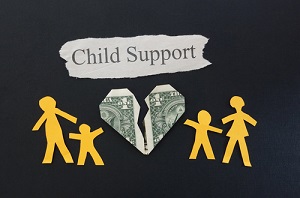Wheaton |
St. Charles |
Sycamore
 630-665-7300
630-665-7300
Recent Blog Posts
How Far Can I Move With My Child?
 Sometimes, life happens. A new job, new relationship or death in the family may necessitate a move, but to relocate a family is almost never easy. This is true because Illinois law does set some restrictions on relocating children, especially during or after divorce. Very often, one parent's interest in seeking new opportunities must be balanced with the other parent's right to parenting time and their children's interests in staying where they are comfortable.
Sometimes, life happens. A new job, new relationship or death in the family may necessitate a move, but to relocate a family is almost never easy. This is true because Illinois law does set some restrictions on relocating children, especially during or after divorce. Very often, one parent's interest in seeking new opportunities must be balanced with the other parent's right to parenting time and their children's interests in staying where they are comfortable.
Recent Changes to Relocation Laws
Before 2016, Illinois law held that a parent could uproot their children for any destination within the state, but if he or she chose to leave the state even by a very small distance, permission of either the other parent or a family court was required. With the revamping of the Illinois Marriage and Dissolution of Marriage Act (IMDMA), a new approach was adopted.
Modification of a Child Support Order in Illinois
 If you make child support payments or receive them for your child, you undoubtedly recognize the importance of your obligation. Regardless of what happened between you and the other parent, your child is entitled to support from both parents. When a child support order is entered by the court, it is imperative for the supporting parent to comply with the order. It is equally important for the recipient parent to use the payments to support the child.
If you make child support payments or receive them for your child, you undoubtedly recognize the importance of your obligation. Regardless of what happened between you and the other parent, your child is entitled to support from both parents. When a child support order is entered by the court, it is imperative for the supporting parent to comply with the order. It is equally important for the recipient parent to use the payments to support the child.
Over time, however, many families will come to a point where the terms of the support order no longer match the circumstances of their situation. In such cases, either parent may petition the court to have the order modified so that the child's current needs can be addressed.
Dramatic Changes
Sometimes, a child support order may become obsolete or unmanageable almost instantaneously. This could happen for a number of reasons, some of which may be welcome changes, but many of which are not. For example, if your child is diagnosed with a serious, chronic medical condition that will incur tens or hundreds of thousands of dollars in equipment and treatment, the child's needs will obviously change. Similarly—though less drastic—if you, the supporting parent, are suddenly laid off or injured and unable to work, your ability to make payments may be directly impacted.
Oral Agreements Are Rarely Sufficient in Divorce
 In most divorce cases, there are a variety of different considerations that must be addressed, including the division of marital property, maintenance concerns, and the allocation of parental responsibilities. Fortunately, many divorcing spouses are able to remain civil and diligently negotiate a reasonable agreement that resolves all of their outstanding issues. While such cooperation is not always possible, spouses who can work together toward reaching a settlement often realize significant savings in terms of time and money throughout the process.
In most divorce cases, there are a variety of different considerations that must be addressed, including the division of marital property, maintenance concerns, and the allocation of parental responsibilities. Fortunately, many divorcing spouses are able to remain civil and diligently negotiate a reasonable agreement that resolves all of their outstanding issues. While such cooperation is not always possible, spouses who can work together toward reaching a settlement often realize significant savings in terms of time and money throughout the process.
During the course of negotiations or informal conversations, you and your spouse may agree to certain terms. No matter what is said or agreed to orally, it is important that you record all of your agreements in writing so that there is no confusion or uncertainty down the road.
Most Oral Agreements Are Unenforceable
As a parent going through a divorce, you and your spouse could reach a verbal agreement regarding which days your child will spend with you but make no effort to acknowledge your agreement in writing. If, one day, you arrive to pick up your child and your spouse refuses to let the child go with you, you could be temporarily out of luck. Your only recourse may be to petition the court to get a parenting time schedule in writing so that your rights are protected.
Spousal Support Considerations in a Divorce
 In your divorce case, you and your spouse will need to make difficult decisions on a large number of considerations. If the two of you are able to cooperate and negotiate amicably, you may be able to reach a reasonable agreement; however, if you cannot, it will be up to the court. In cases where spousal support, known as maintenance under Illinois law, is requested, the court is required by law to take a number of factors into account before making a determination. If you believe that maintenance is justified in your case, you need to understand what those factors are.
In your divorce case, you and your spouse will need to make difficult decisions on a large number of considerations. If the two of you are able to cooperate and negotiate amicably, you may be able to reach a reasonable agreement; however, if you cannot, it will be up to the court. In cases where spousal support, known as maintenance under Illinois law, is requested, the court is required by law to take a number of factors into account before making a determination. If you believe that maintenance is justified in your case, you need to understand what those factors are.
Reasons for Maintenance
A maintenance award is meant to offset some of the negative impact that a divorce can have on a financially disadvantaged spouse. In many marriages, one spouse is the primary earner while the other is essentially dependent on him or her, either by mutual agreement or due to the family's circumstances. A divorce could place a spouse who relies on his or her partner financially in a very vulnerable position. It can be extremely difficult—impossible, in some cases—for that spouse to support him- or herself, especially if he or she is also primarily responsible for the care of the children. This is why maintenance exists, and the Illinois Marriage and Dissolution of Marriage Act provides the court with a list considerations that must be made when deciding on the need for spousal support.
Blocking a Stepparent Adoption
 If you are a divorced parent, it can be challenging at times to maintain a healthy close relationship with your child when you have limited parenting time and relatively few parental responsibilities. Your bond with your child can be even further strained if your former spouse decides to remarry. Many parents are willing to endure the new challenges because the child may experience a renewed sense of security and stability as a result of the remarriage. But, what if the other parent's new spouse expresses interest in legally adopting your child? Do you know what your rights would be in such a situation?
If you are a divorced parent, it can be challenging at times to maintain a healthy close relationship with your child when you have limited parenting time and relatively few parental responsibilities. Your bond with your child can be even further strained if your former spouse decides to remarry. Many parents are willing to endure the new challenges because the child may experience a renewed sense of security and stability as a result of the remarriage. But, what if the other parent's new spouse expresses interest in legally adopting your child? Do you know what your rights would be in such a situation?
Divorcing Parents
According to the law in Illinois, a child can have only two legal parents. When a child is born to a married couple, each spouse is presumed to be the child's legal parent unless there a reason to believe otherwise—a paternity action filed by a third party, for example. A divorce does not alter either spouse's status as the child's legal parent. When a divorced parent remarries, his or her new spouse is not automatically afforded any parental rights or responsibilities under the law. He or she may be the de facto head of the household and act as a parental figure, but those are practical concerns and not legal considerations.
Terminating an Order for Spousal Support
 If you have been ordered to pay alimony—legally known as maintenance in Illinois—your payments are meant to ease the financial effects of the divorce on your ex-spouse. A court may also order maintenance to allow a financially disadvantaged spouse to maintain a standard of living reasonably similar to that which you both enjoyed during your marriage—especially if yours has not markedly changed. In the years that follow your divorce, however, your spouse may find a new romantic partner and begin a relationship. Depending on the nature of that relationship, your obligation for spousal support payments may be affected.
If you have been ordered to pay alimony—legally known as maintenance in Illinois—your payments are meant to ease the financial effects of the divorce on your ex-spouse. A court may also order maintenance to allow a financially disadvantaged spouse to maintain a standard of living reasonably similar to that which you both enjoyed during your marriage—especially if yours has not markedly changed. In the years that follow your divorce, however, your spouse may find a new romantic partner and begin a relationship. Depending on the nature of that relationship, your obligation for spousal support payments may be affected.
Duration of Support Orders
Most orders for spousal maintenance are set for a predetermined number of months or years. The Illinois Marriage and Dissolution of Marriage Act provides a formula for calculating the length of the order as a function of the length of the marriage to be used in most situations. Longer marriages result in relatively longer orders for maintenance, and some cases may result in permanent orders. While Illinois law does use the word “permanent,” it is not an ironclad guarantee that payments must continue until one spouse dies. There are certain occurrences that could permit you to stop making maintenance payments in spite of a permanent order.
Appealing a Divorce Judgment
 A divorce can be extremely stressful and difficult for everyone involved. Regardless of how long the marriage lasted or whether or not there are any children involved, virtually all divorcing couples face complex legal considerations and lifestyle adjustments. When divorce decisions are left to the discretion of the court, it is common for both spouses to be somewhat disappointed in the outcome. In some cases, a spouse may even believe that the court made a mistake in interpreting or applying the law. While many people assume that a divorce decree is final, this is not always the case.
A divorce can be extremely stressful and difficult for everyone involved. Regardless of how long the marriage lasted or whether or not there are any children involved, virtually all divorcing couples face complex legal considerations and lifestyle adjustments. When divorce decisions are left to the discretion of the court, it is common for both spouses to be somewhat disappointed in the outcome. In some cases, a spouse may even believe that the court made a mistake in interpreting or applying the law. While many people assume that a divorce decree is final, this is not always the case.
When to Appeal a Divorce Decision
In any legal matter—especially those that make to trial—at least one of the parties is going be left feeling that the outcome was unfair. A divorce is fairly unique in that most judgments represent a compromise of sorts meaning that there is no clear "winner" or "loser." If, however, the judgment seems to favor the other party, it is understandable to experience feelings of frustration and disappointment. Simply being dissatisfied, however, is not sufficient grounds for an appeal.
Prenuptial Agreements Protect Property Rights
 For most couples, a wedding is a culmination of months—if not years—of planning for a day that will mark the beginning of the rest of their life together. With a ceremony, reception, and honeymoon to put together, relatively few give much thought to a prenuptial agreement. However, as thousands of American divorcees would attest, developing such a contract with your soon-to-be spouse can safeguard your personal and financial well-being.
For most couples, a wedding is a culmination of months—if not years—of planning for a day that will mark the beginning of the rest of their life together. With a ceremony, reception, and honeymoon to put together, relatively few give much thought to a prenuptial agreement. However, as thousands of American divorcees would attest, developing such a contract with your soon-to-be spouse can safeguard your personal and financial well-being.
What is a Prenuptial Agreement?
A prenuptial agreement is a contract that a couple who are going to get married may create and sign prior to their wedding. The agreement typically specifies details how the couple will split their finances in the event of divorce. This includes the division of marital property, such as the house, bank accounts, and marital debt. If you or your spouse own a business, your agreement could also outline your plan for your interests should divorce become a reality. Prenuptial agreements can also be used for other considerations, such as the payment of spousal support and the payment of attorney's fees in the event of divorce.
Filing Your Taxes During Your Divorce
 Under ideal circumstances, it can be very complicated to file your personal income taxes correctly. If you are in the midst of a divorce, the situation can quickly become even more complex. As this year's tax season gets underway, there are a few things to keep in mind that could helpful if you are in the middle of a divorce or your divorce recently finalized.
Under ideal circumstances, it can be very complicated to file your personal income taxes correctly. If you are in the midst of a divorce, the situation can quickly become even more complex. As this year's tax season gets underway, there are a few things to keep in mind that could helpful if you are in the middle of a divorce or your divorce recently finalized.
You Probably Have Choices
The Internal Revenue Service offers taxpayers the ability file their annual tax returns several different ways. Those who are legally married typically have the most options. Legally married refers to your marital status on December 31 of the tax year in question. As such, even if you filed your petition for divorce before the end of the year, you are still legally married until the process is finalized and your judgment is formally entered by the court.
If you were still married on December 31, you may file your taxes as “married, filing jointly.” Depending on the nature of your case, you could also file as “married, filing separately,” but your tax liability will probably be lower if you choose to file jointly. Filing as “head of household” is also possible, and your tax advisor can help determine which is right for your situation. It is important to remember that if you file a joint return, you and your spouse will need to cooperate in the filing process and agree to what is included on the return. You cannot file a joint return without notifying your spouse and getting him or her to sign the filing.
Changes Ahead for Child Support in Illinois
 Most parents are aware that in a divorce, a parent is typically required to make payments of child support to help with the costs of raising a child. It may come as a surprise to learn that the method for calculating child support payments in Illinois has not changed very much in the last several decades. Even last year's sweeping family law reforms, which updated the state's approach to divorce and child custody—now called the allocation of parental responsibilities—failed to address the issue of child support. Beginning this summer, however, child support calculations in Illinois will be handled much differently than they are today.
Most parents are aware that in a divorce, a parent is typically required to make payments of child support to help with the costs of raising a child. It may come as a surprise to learn that the method for calculating child support payments in Illinois has not changed very much in the last several decades. Even last year's sweeping family law reforms, which updated the state's approach to divorce and child custody—now called the allocation of parental responsibilities—failed to address the issue of child support. Beginning this summer, however, child support calculations in Illinois will be handled much differently than they are today.
Understanding the Current Law
The Illinois Marriage and Dissolution of Marriage Act (IMDMA) currently directs a court to calculate child support orders as a percentage of the paying parent's income based on the number of children to be supported. The court is granted limited authority to deviate from the set percentages due to special circumstances of each individual case. As written, however, the statute only considers the paying parent's income. The current law does not account for the recipient parent's income or time that the supporting parent spends with his or her child.


 Read More
Read More





